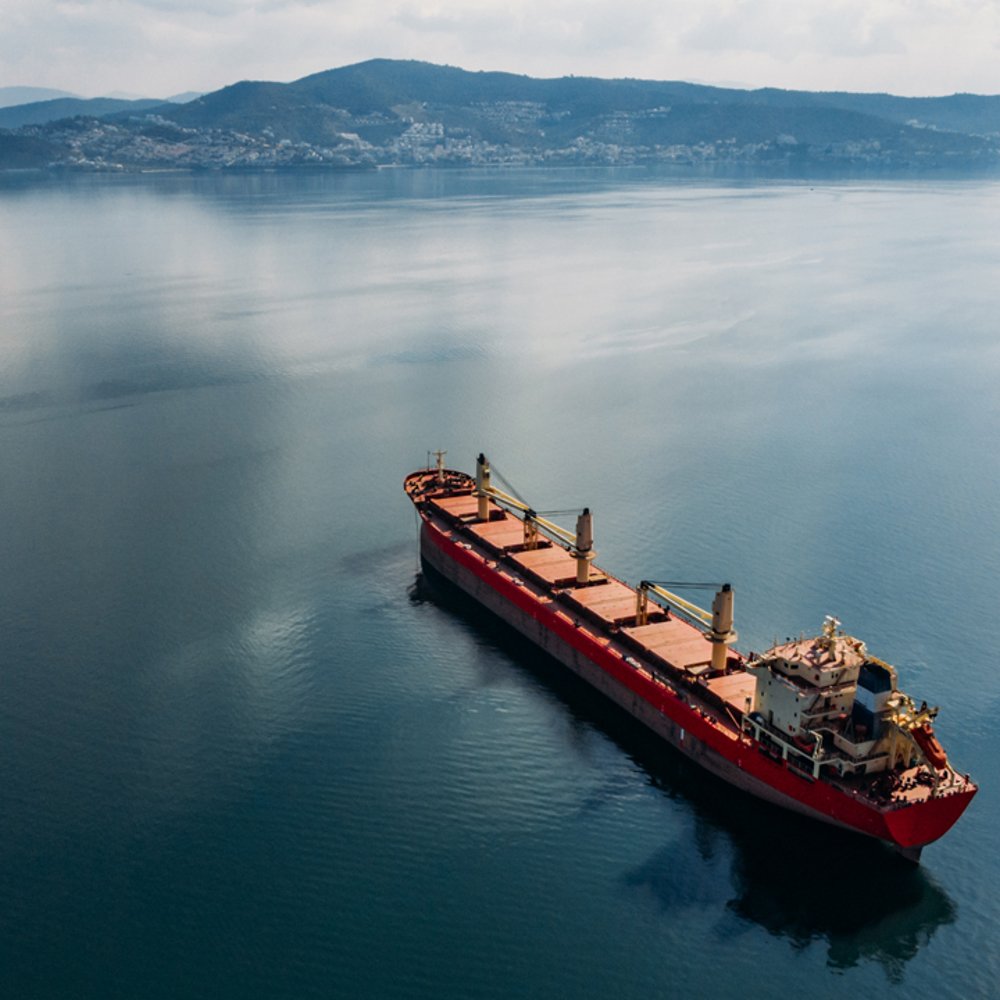Dry bulk carriers are the workhorses of the sea, comprising over 20% of the global merchant fleet. Often considered to be simpler vessels in terms of technology, they now have to meet the same tightening efficiency and environmental standards as all other ship types, in order to minimise the amount of fossil fuel burned and GHG emissions.
Class has an increasingly important role to play in this transformation pathway, both in its traditional classification function of safeguarding safety but also as a trusted advisor in technology, alternative fuels, performance optimisation and sustainability.
Market-wise, dry bulk is currently enjoying an overall strong run after having suffered in recent years, and the improved performance looks set to continue for the next couple of years. Sentiment is good and the fundamentals of supply and demand look favourable. Most of the major trades – such as coal, grain and minor bulks – are set to grow while iron ore is expected to be more or less stable. And while last year was the strongest in a decade for the sale and purchase of secondhand bulk carriers, the global orderbook for new vessels remains low. This is partly due to high prices as most major yards are full, mainly with container vessels.
The second reason is a reluctance by dry bulk owners to place new construction orders due to the continued uncertainty over potential fuel and technology options for current/future decarbonisation regulatory compliance. Considering an optimal mix of fuel and technologies aboard vessels, based on their size and anticipated trades that can promise compliance throughout the investment horizon or the lifetime of the vessel, are key topics that need to be addressed. And for this reason the role and value of class societies has been evolving in the dry bulk sector as well. Leading organisations like LR have the knowledge, experience and capacity to advise shipowners on how to manage such complex environment and navigate the decision-making process, in addition to the classification services they provide.
Going forward, we see energy efficiency becoming more important than ever and technologies/solutions towards more efficient and thus environmentally-friendly bulk carriers are in focus. While LNG dual-fuelled engines are already an option, the potential of ammonia and methanol are being explored further, either in terms of technology maturing or uptake. Most notably, we are already seeing an increasing interest in wind-assisting systems, both for retrofit and for new ships. Such systems have the potential to provide tangible fuel savings and corresponding emission reduction in a relatively less complex manner.
It’s worth stressing that at LR we are focusing on new technology from the viewpoint of safety, efficiency, cost-effectiveness, and overall better vessels; but also ways in which new technology can be seamlessly adapted. It’s one thing to develop a new technology or try to migrate it from one sector to another, but quite another to have this technology adopted in practice. That’s why over the past three years LR has entered into over 70 joint development projects for bulk carriers with ship designers and yards in China alone, more than half of which have already been incorporated into newbuilding projects.
LR is also very active in digital technology, supported by our investments in two key digital solution providers – Hanseaticsoft and i4 Insight. The digital platforms and solutions provided on fleet management and fleet performance optimisation have a proven track record, used also by dry bulk shipping companies. I fully expect that the uptake of these kinds of digital services in the dry bulk sector will increase considerably based on their demonstrated usefulness in practice and ability to simplify operations and save money.
Last but not least I would like to emphasise that we should pay increasing attention to our crews onboard. The crew change crisis caused by travel restrictions during the Covid pandemic demonstrated once again how important the human factor is. The upcoming use of new technologies, together with the handling of multiple fuels onboard, possibly of wide quality variation, signifies the importance of continuous training and support for all our seafarers on the required competencies and safety management. Knowledge and digital technology aid in this respect too.







